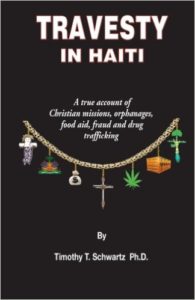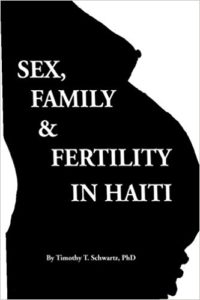This is Part III of a three part series about accountability in the NGO sector. In Part I, I examined NGO accountability globally. In Part II, I traced the history of NGO accountability in Haiti. In this Third Part, I provide recommended actions to increase accountability among NGOs in Haiti and make them more effective.
The idea was picked up almost verbatim by the Haitian government in 2014 and some sort of decree published that they were implementing such a project. Never happened. Today I’m pursuing a new version. More on that another time. For now, it might be useful to those interested in the issue of accountability among NGOs.
Context
The January 12th 2010 earthquake was a terrible disaster, but many people also saw it as a chance to pull Haiti from the depths of poverty and underdevelopment. Sympathetic individuals, companies, church congregations, schools, and governments from around the world pledged or donated an estimated 10 billion US dollars. The money was intended to help the Haitian people overcome the tragedy and reconstruct the capital city and surrounding areas. More than 50% of the donated money has already gone or will go directly to NGOs and UN agencies. Veterans of the Haitian NGO sector such as CARE International, World Vision, and CRS massively expanded their programs and a vast number of new NGOs arrived in Haiti for the first time. With the aid came earnest protestations to be accountable and to hold accountable. Despite the early hope and the plans, in the 15 months since the earthquake a chorus of criticism has arisen demanding an explanation for what happened to the aid. No one has yet given a satisfactory answer. The Haiti Donor guide can help give the answer and keep providing answers in the future. It is a first step in providing foreign donors, as well as the NGOs and the Haitian government with an effective mechanism for tracking aid, and discriminating between those projects that are successful and those that are not.
THE HAITI DONOR GUIDE
The Haiti Donor Guide is a non-partisan undertaking dedicated to the formation of the Haiti Project Monitoring Group, Haiti Aid Map, and the Haiti Report Repository. It is meant to satisfy the information needs of donors and NGO staff while at the same time giving a voice to the intended recipients of foreign aid in Haiti.
The Haiti Project Monitoring Group will be an independent and impartial ranking and evaluating agency that will verify the existence of all foreign funded projects in Haiti, and rate them on a basis of transparency, effectiveness, and efficiency. In other words, is the parent organization disposed to disclose information about the project? Does the project in fact exist? Is the project reaching the intended beneficiaries and if yes, how efficiently?
The Project Monitoring Group will not be another voluntary cooperative alliance of member NGOs or a medium for NGO self-evaluation and self-monitoring. It will be an independent company that hires, trains, and manages physically capable, committed, tri-lingual (Creole/French/English) Haitian development workers to collect information on current foreign funded aid projects. The gathered information will then be relayed to a team of experts who process and analyze the data and then publish it on the Donor Guide web site. The information will help in decision making process regarding foreign Aid. It is meant not to detract from the NGO efforts to alleviate poverty and suffering; it is meant to make the sector more efficient and effective.
The Haiti Aid Map will be a GIS documentation of the specific project sites, and it will be linked to information obtained from the organization together with the Donor Guide findings and evaluations. Unlike similar maps that depend on reporting from the staff of the NGOs in question, the Haiti Aid Map will be based on data and GPS points gathered by Donor Guide employees. The map will allow users to document project relevance, as well as cooperation and progress vis a vis other projects, indicating areas where efforts are duplicated and where the aid is needed. The Aid Map will be available for organizations such as USAID, CIDA, GTZ, EU, the UN, and most importantly, the GOH in their efforts to coordinate development activities. Geographical Information System (GIS) technology will be used to maximize the efficiency and accuracy of the Mapping and make the information easily accessible on the website.
The Haiti Report Repository will use a system similar to academic peer review to help agencies determine the quality and usefulness of reports, evaluations, as well as academic treatises that can be drawn on to make development more effective. The Repository sector will include a Wikipedia type interactive and editable encyclopedia regarding Haitian history and development topics, an online Haitian Development Journal, development news, and online discussion groups where ideas can be shared. It will be interactively linked to both the Aid Map and Monitoring Group reports.
The Haiti Donor Guide is a positive step toward helping the poor of Haiti. It is meant as a feedback mechanism for NGOs as well for their donors and as a voice-mechanism for the people they are meant to serve (the aid recipients). It will give the NGO community in Haiti a criteria with which to measure success, to learn from mistakes, to improve service delivery, and to demonstrate to the public and donors the effectiveness and goodwill of the NGO community. It is a long overdue step toward greater cooperation in the endeavor to help the poor of Haiti.
A list of overlapping benefits include:
Promote NGO Accountability
- Close the feedback loop between NGOs, donors and recipients
- Give NGOs an unbiased media for reflexivity, feedback, and improvement
- Provide pressure for honesty and effectiveness
- Demonstrate the credibility of sincere NGOs
- Help expose fraudulent NGOs
Improve NGO Management
- Give NGOs feedback with regard to management and field operations…
- Create the institutional foundation for certification and accreditation
Increase Impact on Beneficiaries
- Give recipients a means of voicing their opinions and recounting their experiences and giving donor feedback
- Assure that target beneficiaries receive expected goods and services
Encourage More Effective M&E systems
- Create the institutional foundation for a system of data gathering and regional monitoring
- Assure that standards are being met
- Train and encourage Haitian students to enter evaluation, monitoring, and coordination.
Optimize allocation of resources
- Help channel funds to NGOs that are honest, efficient, and effective
- Eliminate waste
- Prevent duplication of efforts
Improve Information Management
- Inform public officials, journalists, and other NGOs of important field developments
- Share information between NGOs and other sectors
Increase Relevance
- Provide information necessary for planning and coordination
- Guide resources where they are most effective and most needed
Afterword
A response to a comment from the original post:
Imagine 100 NGOs discovering that they all are complaining about the same few officials. As it stands now we have no voice, no where to complain. Yet, we all have similar complaints.
Note that this does not have to be conceptualized as hostile. Nor should it be. Just as the Donor Guide is emphatically not an attack on well-intended NGOs but a service to them, channeling our complaints to improve the Haitian government bureaucracy could and should be understood as a service.
It’s important to keep in mind that all of us, Haitians included, share the same principals and goals. At least publicly everyone is will profess that they want the system to be better, to be more effective, to be honest. We want it to do what it is supposed to do.
We should harness those publicly shared values and goals. Shine the light on them.
So to finish the thought: if the complaint is found to be legitimate and the relevant officials do not address the issue, the complaint gets published. We name them. If they don’t like it they can respond. We’ll publish their complaints and comments too. But three legitimate complaints not adequately addressed and we throw the officials name on a list of most corrupt Haitian officials.
I don’t want to go to far here, but if the Donor Guide were to achieve credible standing and support, at a certain point embassies might contribute to putting pressure on those individuals. Their rating could be considered in visa applications and renewals. But no matter how you cut it, no one wants to be called a crook online, especially not on a credible site that has investigated the case.








